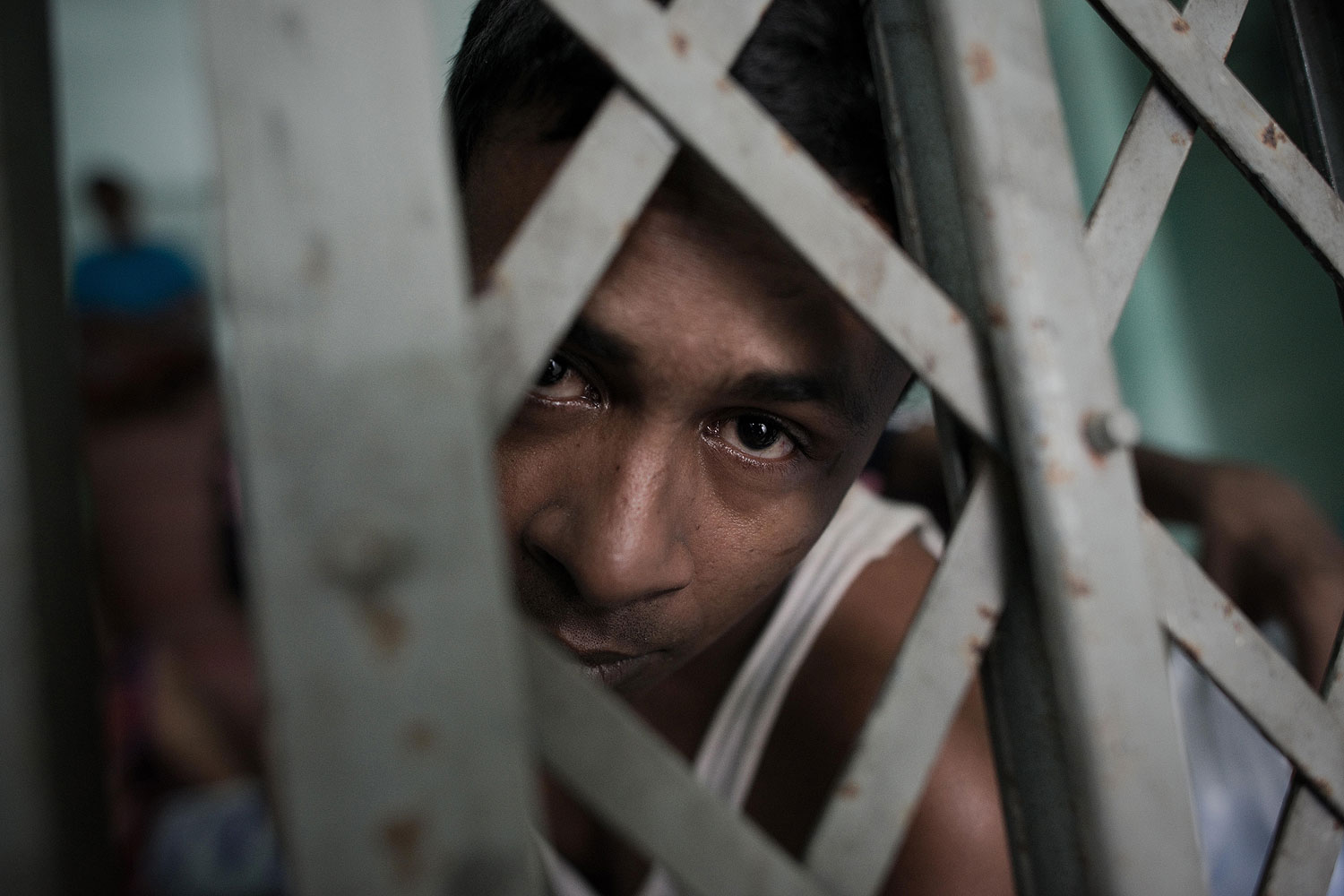
Thailand says it has deported around 1,300 Rohingya asylum seekers back to Burma (officially known as Myanmar), in a move dubbed “appalling” by human rights activists.
The figure represents virtually all of the Rohingya boatpeople who have washed up on Thai shores.
“The deportations were voluntary. We sent them back 100 to 200 people at a time,” Thai Police Lieutenant General Pharnu Kerdlarpphon told the Associated Press.
Many Rohingya risk their lives attempting to reach perceived safe havens, such as Muslim-majority Malaysia, on barely seaworthy boats, only to get detained in Thai waters. But Bangkok has not ratified the 1951 Refugee Convention and still does not have functioning asylum procedures.
“The Thai government has consistently failed to respect the rights of Rohingya asylum seekers,” says Matthew Smith, executive director of the Fortify Rights NGO. “It’s an appalling response to serious human rights violations.”
The Rohingya have been dubbed “one of the world’s most persecuted peoples” by the U.N., and around 140,000 current live in squalid displacement camp in western Burma’s Arakan state after ethnic violence that saw thousands of homes burnt and claimed more than 280 lives since June 2012.
Despite the latest repatriation, activists warn that many more boatpeople will likely be washing up on Thai beaches soon, especially after a recent escalation in violence and heightened tensions over a new national census.
Last month, at least 48 Muslims were killed when Buddhist mobs attacked a village western Burma’s northern Arakan state, according to the U.N. Navi Pillay, the U.N. High Commissioner for Human Rights, called on authorities “to carry out a full, prompt and impartial investigation and ensure that victims and their families receive justice.”
The Burmese government claimed Rohingya groups were spurring unrest, and dismissed reports in foreign media that “children and women were killed in the violence.”
On Feb. 4, Rohingya MP Shwe Maung was interrogated by police for 90 minutes after giving an interview to the Democratic Voice of Burma, during which he claimed to “have solid information from locals in nearby villages who phoned me and said they saw the police setting the houses on fire.”
According to the Myanmar Times, the lawmaker, a member of the ruling military-backed Union Solidarity and Development Party, said the subsequent police action came at the direct request of reformist President Thein Sein. (Shwe Maung could not be reached by TIME on Friday.)
Many Burmese Buddhists call Rohingyas “Bengalis” to support the spurious notion that they are recent illegal immigrants from neighboring Bangladesh, despite the fact that Rohingya have lived in the country for generations.
Denied Burmese citizenship, Rohingya face restrictions on movement, marriage and education (although paradoxically they are allowed to stand for parliament). Stoking tensions is the first national census for 30 years, which is due to take place from March 30 until April 10, run by the U.N. Population Fund (UNFPA) and Naypyidaw government at a cost of some $75 million.
In November 2012, a separate survey, conducted without the UNFPA, sparked violence when Rohingya refused to register as “Bengali,” and several people were gunned down by security forces in subsequent protests. Naturally, “the Rohingya population have very legitimate concerns about participating in a paper trail that could very well be used against them,” says Smith.
Conversely, militant Buddhists have used the impending census to stoke sectarian fervor. “Some extremist Rakhine political actors undoubtedly fear that the census would establish a baseline Rohingya population that would make it more difficult to sustain the narrative of recent migration in the future,” says the International Crisis Group in a report released Thursday.
Even the saffron-robed Buddhist clergy have frequently enflamed religious tensions. On Thursday, a meeting by the main opposition National League for Democracy party, led by Nobel Laureate Aung San Suu Kyi, had to be canceled after more than 40 monks complained that two of the four speakers were Muslim.
Compounding matters are possible inaccuracies in the 1983 census, which put the national Muslim population at around 4%. Many analysts believe this figure was deliberately under-reported to foil unrest, and that in truth it lay at around 10%. Accurate figures released now, they fear, could stoke fears amongst Buddhists of Burma recently being “overrun” by Muslims.
When xenophobic dictator Ne Win drew up Burma’s official list of 135 ethnic groups in 1962, he left out the Rohingya, so they will not be included on the census document by name. Instead, they will have to list themselves under an “other” column, raising concerns about U.N. involvement in a process that reinforces state-backed prejudices.
“The UNFPA needs to proceed with great caution because they are in a position to essentially support a process that will contribute to disunity in the country,” says Smith. “Ethnic disunity is one of principle obstacles to the reform process.”
More Must-Reads from TIME
- Donald Trump Is TIME's 2024 Person of the Year
- Why We Chose Trump as Person of the Year
- Is Intermittent Fasting Good or Bad for You?
- The 100 Must-Read Books of 2024
- The 20 Best Christmas TV Episodes
- Column: If Optimism Feels Ridiculous Now, Try Hope
- The Future of Climate Action Is Trade Policy
- Merle Bombardieri Is Helping People Make the Baby Decision
Write to Charlie Campbell at charlie.campbell@time.com